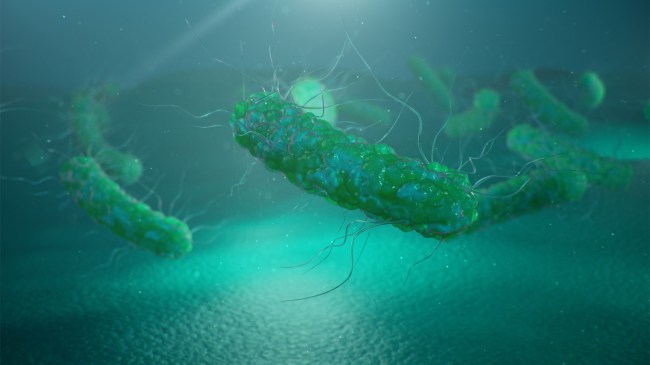iStockphoto
A multi-drug resistant superbug was found to be mutating on the International Space Station, potentially putting the astronauts who docked the Boeing Starliner there last week in danger.
13 strains of the bacterium Enterobacter bugandensis that is “notorious for being multi-drug resistant,” according to NASA, were discovered in various locations in the ISS.
Those strains were then left in a closed human environment where they mutated and became genetically distinct from the same bacterium found on Earth.
In a research paper published in the journal Microbiome, the scientists who studied the mutation of the Enterobacter bugandensis strains on the International Space Station wrote, “Microorganisms within built environments profoundly affect the health of inhabitants.
“The ISS, a highly controlled built environment harboring extreme conditions such as microgravity, solar radiation, and elevated carbon dioxide levels levels, offers a unique place for studying microbial survival and adaptation.”
“Recent studies have demonstrated that microorganisms exposed to microgravity can acquire antibiotic resistance and heightened virulence via rapid mutations and horizontal gene transfer.
“Prolonged space travel under microgravity can also compromise astronauts’ immune systems, elevating their vulnerability to diseases.
“The microbial population of the ISS might potentially impact astronauts’ microbiomes and get replenished by the arrival of new crew.
“Thus, understanding microbial colonization, succession, and interactions is pivotal for ensuring astronaut well-being and managing microbial risks in isolated and confined human habitats.”
The researchers added that their findings both “shed light on microbial behavior, adaptation, and evolution in extreme, isolated environments” and “underscore the need for robust preventive measures, ensuring the health and safety of astronauts by mitigating risks associated with potential pathogenic threats.”
They believe that “the singular nature of the stresses of the space environment, distinct from any on Earth, could be driving these genomic adaptations” of the 13 strains of Enterobacter bugandensis.
According to the National Institutes of Health, nosocomial pathogens, such as Enterobacter bugandensis, “can cause life-threatening infections in neonates and immunocompromised patients.”

